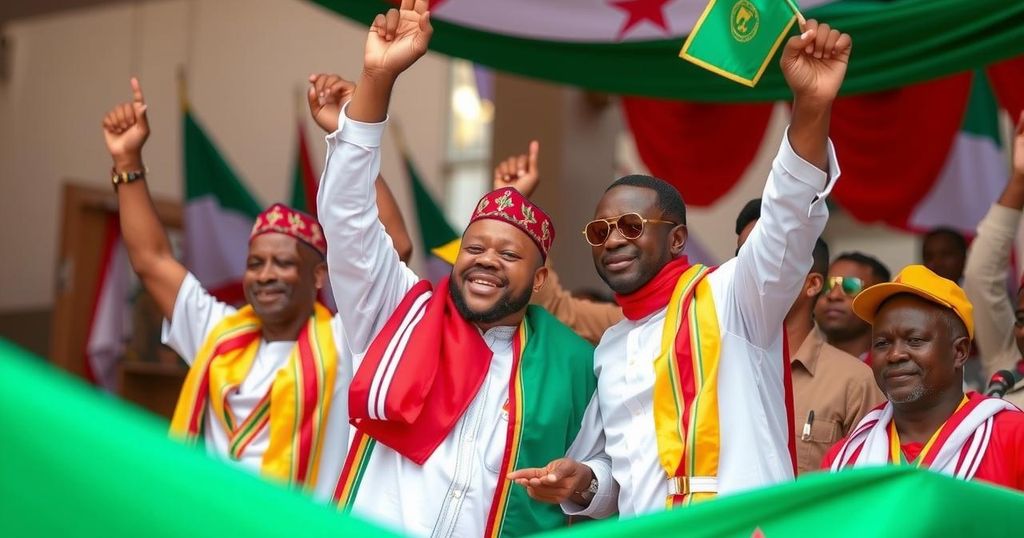Chad’s Ruling Party Secures Majority in Controversial Parliamentary Election

Chad’s ruling Patriotic Salvation Movement party claimed a majority in the parliamentary elections, securing 124 seats amid a boycott by the main opposition parties. Voter turnout was reported at 51.5%. This election marks a crucial step in the country’s democratic transition, following the military takeover by President Mahamat Idriss Deby in 2021 after his father’s death. Opposition parties labeled the election a “charade”, raising concerns over electoral legitimacy amidst security challenges.
In the recent parliamentary election held in Chad, the ruling Patriotic Salvation Movement party secured a decisive majority, winning 124 out of 188 seats. This election, which saw a voter turnout of 51.5%, was marked by a boycott from the main opposition parties, rendering the political landscape less competitive. The electoral process was presented as the final stage in Chad’s transition to democracy, initiated following the military takeover by President Mahamat Idriss Deby in 2021 after the death of his father, the former long-serving president Idriss Deby Itno. President Mahamat Deby characterized the election as a pivotal step towards decentralization, aimed at empowering local governance. Despite the ruling party’s clear victory, the boycotting opposition criticized the elections, labeling them a “charade” and expressing concerns about their integrity, a sentiment echoed during last year’s contested presidential vote.
Chad has a complex political history, having experienced prolonged periods of authoritarian rule, notably under former President Idriss Deby Itno, who governed for thirty years. Following his death in 2021, his son Mahamat Idriss Deby assumed power as a military ruler. The recent parliamentary elections were the first to be held in over a decade and were expected to contribute to the nation’s democratic transition. However, the significant absence of opposition parties from the electoral process raised questions regarding the legitimacy and fairness of the elections, particularly after allegations of irregularities during the previous presidential election. This political backdrop is further complicated by ongoing security challenges, particularly from extremist groups operating in the region, alongside strained international relations.
The outcomes of the parliamentary elections in Chad confirm the ruling party’s stronghold on power amidst an absence of credible opposition. With President Mahamat Idriss Deby emphasizing a commitment to decentralization, the election represents a critical juncture in Chad’s political landscape. However, the boycott by opposition parties and allegations of electoral misconduct raise significant concerns regarding the true nature of democracy in Chad. As the country contends with security issues and its relationship with former allies, the path to effective governance remains fraught with challenges.
Original Source: www.euronews.com






